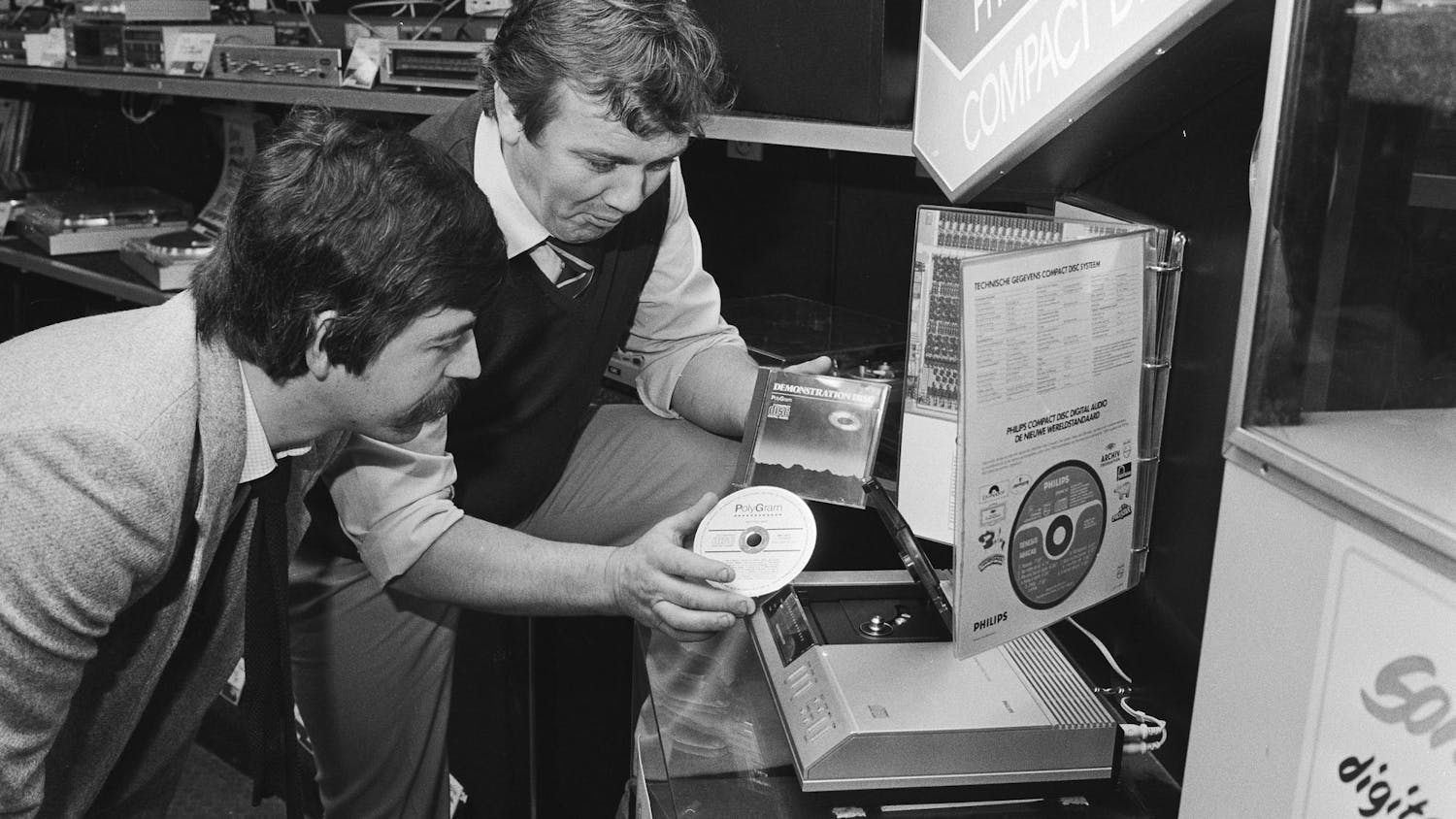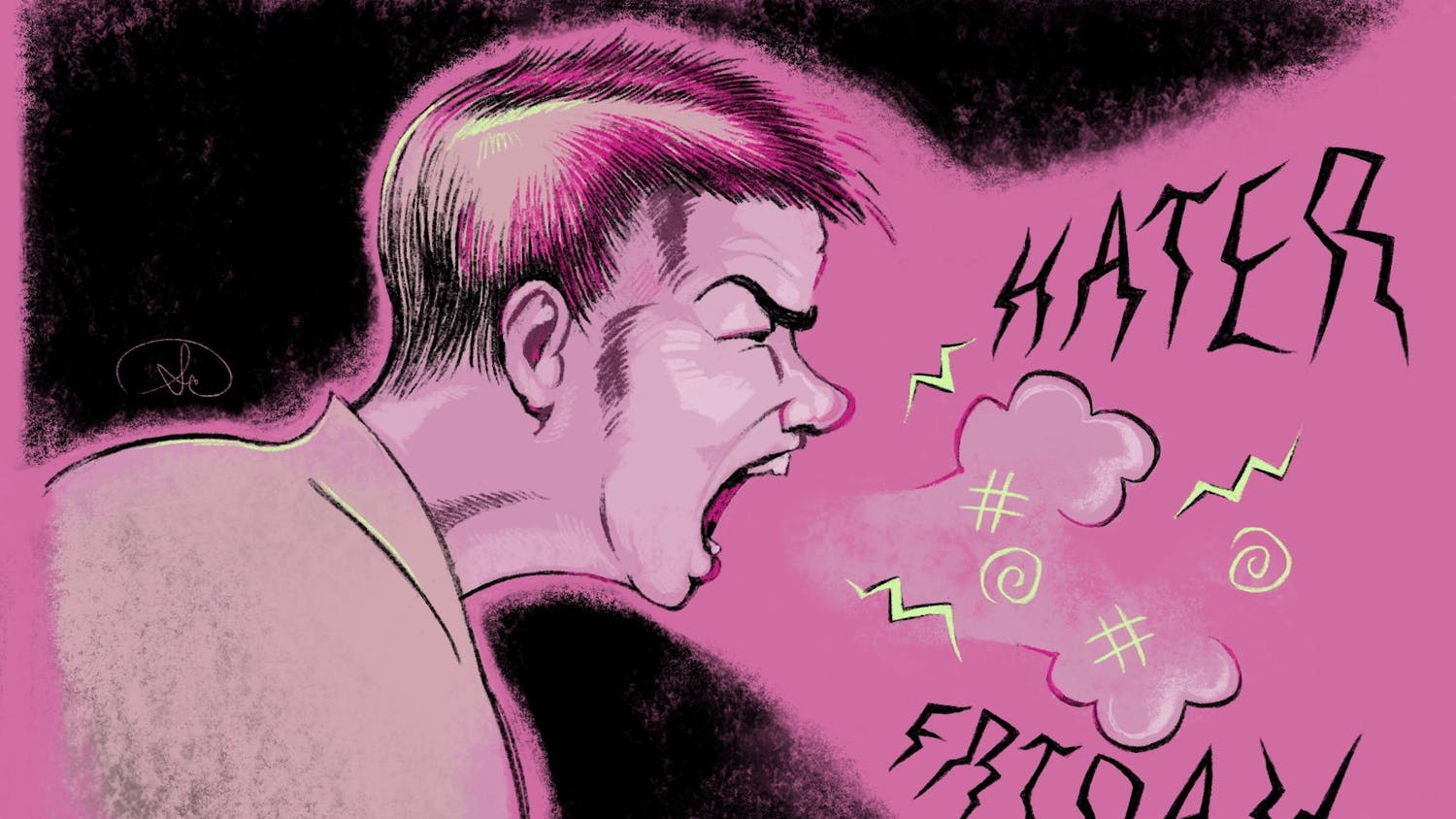A Blink-182 baby tee. Low-rise jeans. Juicy Couture’s bling collection. Characterized by bold colors and flashy patterns, the Y2K style is distinctive in its playful girlishness: It’s messy, loud and daring. As a result of both the inherently cyclical nature of fashion trends and also Gen Z’s nostalgia for the retro-futurism of the digital age, Y2K fashion has been making a steady comeback, proudly re-inserting itself into the mainstream.
The term Y2K, short for “the year 2000,” was first meant as a term to describe a certain computer bug that was predicted to occur when the year changed from 1999 to 2000. However, the term has grown to encapsulate a particular aesthetic associated with the late 1990s and early 2000s. Though this aesthetic was originally more outwardly futuristic — characterized by metallic, reflective materials and blobject designs — it evolved into a flashy, bedazzled style often conflated with the “McBling” style. With the turn of the century came nervous anticipation for the advent of the digital age and the future of the world. We retroactively coin this sentiment “futurism”: from camera phones to iPods to the GPS, the world was changing rapidly, and the world of pop culture was not far behind.
With the freedom of expression that came with Y2K — seriously, look at Jennifer Lopez’s iconic green Versace dress — came an advent in the music scene with the global domination of hip-hop, the revival of post-punk, and, importantly, the popularization of pop-rock. In recent years, 2000s-esque pop-rock has been returning to the current music scene. This is not to say that music from the 2000s is necessarily climbing the charts — although “Unwritten” by Natasha Bedingfield has, in fact, been experiencing a resurgence in popularity because of its appearance in the recent romcom Anyone but You. Instead, I mean to argue that pop artists have been attempting to recreate these genres. The most relevant example I can think of is Olivia Rodrigo with her album GUTS; the energetic, colorful pop-rock sound mirrors that of Y2K artists like Avril Lavigne and Paramore. Interestingly, Rodrigo’s album received immediate commercial success, indicating that the pop-rock sound is not yet dead.
However, this seemed to have been somewhat of an outlier in the pop-rock scene. Other artists who have tried to recreate this sound, like Leah Kate, have not been able to reach anywhere near the success of Avril Lavigne, Paramore or even Olivia Rodrigo. Even Olivia Rodrigo’s music seems to lose the spunk and whimsy that defined Y2K pop-rock artists, and, while she gets the closest, her sound feels more performative than natural.
Without the social context of the Y2K era, the sounds and aesthetic of Y2K lose their depth. Pop-rock and post-punk artists like Paramore and Blink-182 were popular not only because of their music but also because they were reactionary — songs by pop artists like Britney Spears, Destiny’s Child or Nelly existed in a monoculture of pop music and lacked the depth and passion that the pop-rock and post-punk scenes brought to the table. But in 2025, the musical landscape is much more diverse; with various genres beginning to creep up mainstream charts, the advent of genre-blurring and generally more emotional depth in mainstream pop and hip hop, there is no longer a need for reactionary music. While this doesn’t take away from the quality of the music, it detracts from the listening experience and the motivation to listen. Pop-rock has never been an unpopular genre, but, as music becomes more multicultural, diverse and emotive, I doubt that we will ever again experience the genre’s peak.
Gen Z is obsessed with the concept of “newstalgia,” and I don’t think our romanticization of past decades will ever go away. But, to an extent, a Gen Z reiteration of a past aesthetic cheapens it; the aesthetic begins to feel dated or unnatural, and the impact is lessened. Perhaps it is time to stop looking for ourselves in the past and instead allow ourselves to form a unique identity. Or maybe it is this retroactivity that defines our era. Who knows?
Yaelin Hough is a freshman in the College of Arts & Sciences. She can be reached at yhough@cornellsun.com.











